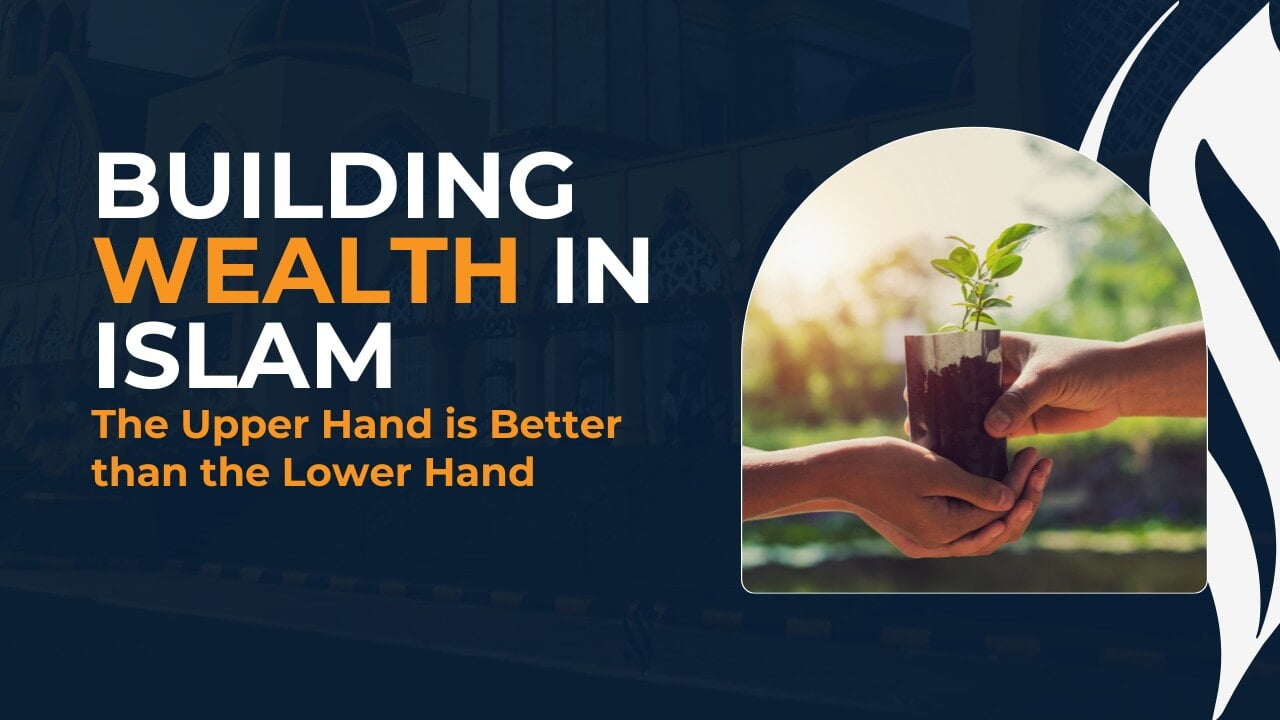
Earning Halal Wealth
The foundation of building wealth in Islam lies in earning income through halal (permissible) means. This involves avoiding occupations that are harmful, exploitative, or involve usury (riba). Muslims are encouraged to engage in honest work, treat employees fairly, and prioritize ethical business practices. The Quran emphasizes this in Surah Al-Baqarah (2:188): "And eat up not one another’s property unjustly (in any illegal way e.g. stealing, robbing, deceiving, etc.), nor give bribery to the rulers (judges before presenting your cases) that you may knowingly eat up a part of the property of others sinfully."
Building Successful Businesses
Building Successful Businesses
While there are many ways one can build wealth, when one looks at the lives of the sahabah and the Prophet, we see that some of the most righteous of companions like Abu Bakr, Umar, Uthman, and Abdurrahman Ibn Auf (رَضِىَ اللّٰەُ عَنْهُ) were all engaged in business.
The Prophet Muhammad (ﷺ) himself was a successful merchant, known for his honesty, integrity, and fair treatment of customers. Muslims can emulate these qualities by prioritizing ethical business practices, building trust with customers and suppliers, and offering excellent products and services.
Furthermore, Islamic teachings emphasize community support and cooperation. Muslims can leverage their networks to find investors, partners, and customers who share their values. Collaboration and knowledge-sharing within the Muslim community can foster innovation and growth. By combining strong business acumen with Islamic principles, Muslimscan build thriving businesses that contribute positively to their communities and become the "upper hand" not just in terms of wealth, but also in terms of ethical and social impact.
The Importance of Charity: Zakat and Sadaqah
The Importance of Charity: Zakat and Sadaqah
Building wealth in Islam goes hand-in-hand with fulfilling one's obligation to charity. Zakat, one of the Five Pillars of Islam, is a mandatory annual levy placed on specific types of wealth. This purifies wealth and ensures its circulation within the Muslim community. Zakat is calculated at specific rates depending on the type of wealth and is distributed to the poor, needy, and other designated categories outlined in the Quran (Surah At-Tawbah 9:60).
Voluntary charity, known as Sadaqah, is another cornerstone of Islamic wealth management. Muslims are encouraged to give generously to those in need, regardless of their religion or background. Sadaqah can take various forms, from monetary donations to volunteering one's time and skills.
Prophet Muhammad (ﷺ) said: “Charity extinguishes sin as water extinguishes fire.” Al-Tirmidhi (614); classed as saheeh by al-Albaani
Striking a Balance: Avoiding Extravagance
Striking a Balance: Avoiding Extravagance
The Hadith "The upper hand is better than the lower hand" highlights the virtue of giving over receiving. However, Islam also discourages excessive accumulation of wealth and encourages living a moderate lifestyle. Muslims are advised to avoid extravagance and unnecessary debt. The Quran warns against wastefulness in Surah Al-Isra (17:27): "Verily, the spendthrifts are brothers of the Shayâtîn (devils), and the Shaitân (Devil-Satan) is ever ungrateful to his Lord."
Financial responsibility is key. Muslims are encouraged to plan for the future, save for emergencies, and avoid impulsive spending. This financial prudence allows for both fulfilling one's obligations and helping others.
Building a Legacy of Generosity
Building a Legacy of Generosity
Ultimately, building wealth in Islam is not just about material possessions. It's about using wealth for good and leaving a positive financial legacy. This can be achieved by providing for one's family, contributing to charitable causes, and supporting future generations.
Ready to Start & Grow Your Muslim Business?
Ready to Start & Grow Your Muslim Business?
Looking to start a business? Visit Muslim Founder's Accelerator. Are you an existing Muslim founder looking to grow your business? Check out Muslim Founder's Club or our Business Growth Services.
Join our newsletter for free to get top quality content to help you start & grow your Muslim business, Insha'Allah.

